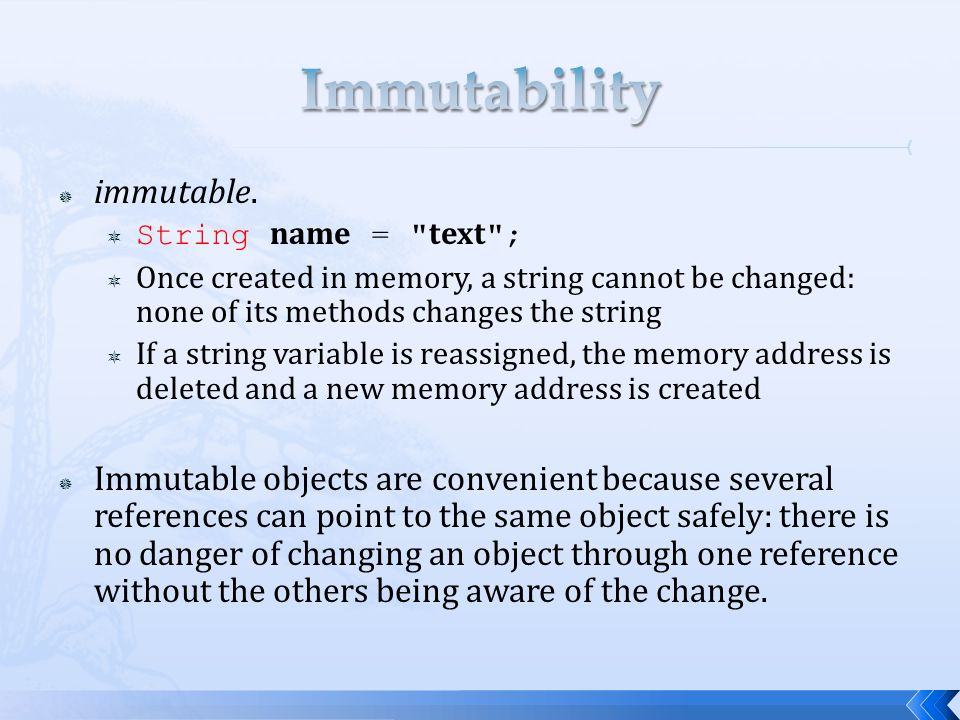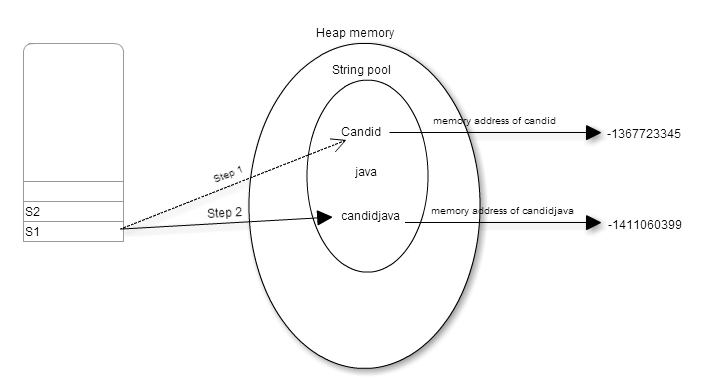Why Are Strings Immutable in Java? Enhancing Code Reliability
Why Are Strings Immutable in Java? Enhancing Code Reliability
Blog Article
Unalterable Strings: A Trick Element in Ensuring Information Consistency and Dependability
In the world of information administration, the importance of immutable strings can not be overstated. The concept of unalterable strings goes beyond plain formality; it is a cornerstone in the complicated web of data administration.
The Principle of Immutable Strings
Unalterable strings, a basic idea in shows, describe strings that can not be customized when they are produced. Fundamentally, when a string worth is appointed, any kind of procedure that shows up to modify the string really produces a brand-new string. This immutability makes certain information consistency and reliability in applications, as it avoids unexpected changes to the initial data.
Benefits in Data Uniformity

Data consistency is critical in various facets of software program development, consisting of data source monitoring, multi-threaded settings, and dispersed systems (Why are strings immutable in Java?). Unalterable strings add considerably to accomplishing this uniformity by stopping information corruption because of concurrent access. In circumstances where several procedures or strings connect with the exact same information all at once, unalterable strings serve as a protect against race problems and synchronization concerns
Moreover, the immutability of strings simplifies debugging and testing procedures. With immutable strings, programmers can rely on that as soon as a string is established, it will continue to be unchanged, making it much easier to map the source of errors and guaranteeing that test cases produce consistent results. This reliability in information managing ultimately brings about more stable and durable applications.

Carrying Out Immutable Strings
Making sure the immutability of strings calls for a thoughtful approach to their execution in software development. When a string item is developed, one crucial method is to design string courses in a way that prevents adjustments. By making strings immutable, programmers can boost information uniformity and integrity in their applications.
To execute unalterable strings successfully, programmers ought to favor developing brand-new string objects instead of changing existing ones. This practice makes sure that when a string is designated a worth, it can not be changed. Furthermore, any kind of operation that shows up to change the string must develop a brand-new string with the desired adjustments instead of changing the original.
Moreover, utilizing unalterable strings can simplify concurrency administration in multi-threaded atmospheres. Considering that immutable strings can not be altered after creation, they can be safely shared among several strings without the risk of information corruption.
Duty in Integrity Assurance
In software development, the usage of unalterable strings plays a vital function in making certain the reliability of data procedures. Immutable strings, once created, can not be customized, making certain that the information they stand for remains constant throughout the application's execution. This immutability building supplies a degree of assurance that the data being processed will certainly not be inadvertently altered, resulting in unanticipated end results or errors in the system.
By incorporating unalterable strings right into software application layout, programmers can enhance the reliability of their applications by reducing the risks related to mutable data - Why are strings immutable in Java?. Immutable strings help in stopping data corruption top article or unintentional alterations, which can be particularly crucial when handling sensitive info or when information integrity is critical
In addition, using unalterable strings streamlines concurrent handling, as several threads can securely access and share string data without the risk of one thread changing the content while one more is reading it. This facet adds significantly to the overall reliability of the software application system, making sure regular and predictable actions in information handling operations.
Applications and System Assimilation
The smooth assimilation of immutable strings right into various applications and systems is critical for making sure durable data uniformity and reliability throughout diverse technological environments - Why read here are strings immutable in Java?. Unalterable strings play an important duty in improving the stability of information exchanges and communications within complex software ecosystems. By including immutable strings right into applications, developers can alleviate the dangers connected with data meddling, unapproved alterations, and unintended alterations, consequently fortifying the total security position of the system
Immutable strings can boost interoperability between inconsonant systems by supplying a standardized style for data depiction, making it possible for more reliable information handling and exchange protocols throughout interconnected platforms. By taking on immutable strings in applications and system integration processes, organizations can fortify their information facilities and promote the dependability and consistency of their information possessions.
Verdict
To conclude, immutable strings play a crucial duty in maintaining information uniformity and integrity in numerous applications and system integrations. By ensuring that strings can not be changed as soon as developed, the stability of data is protected, minimizing the threat of mistakes and inconsistencies. Applying immutable strings can considerably enhance the reliability of systems, eventually causing even more precise and dependable data processing.

Report this page